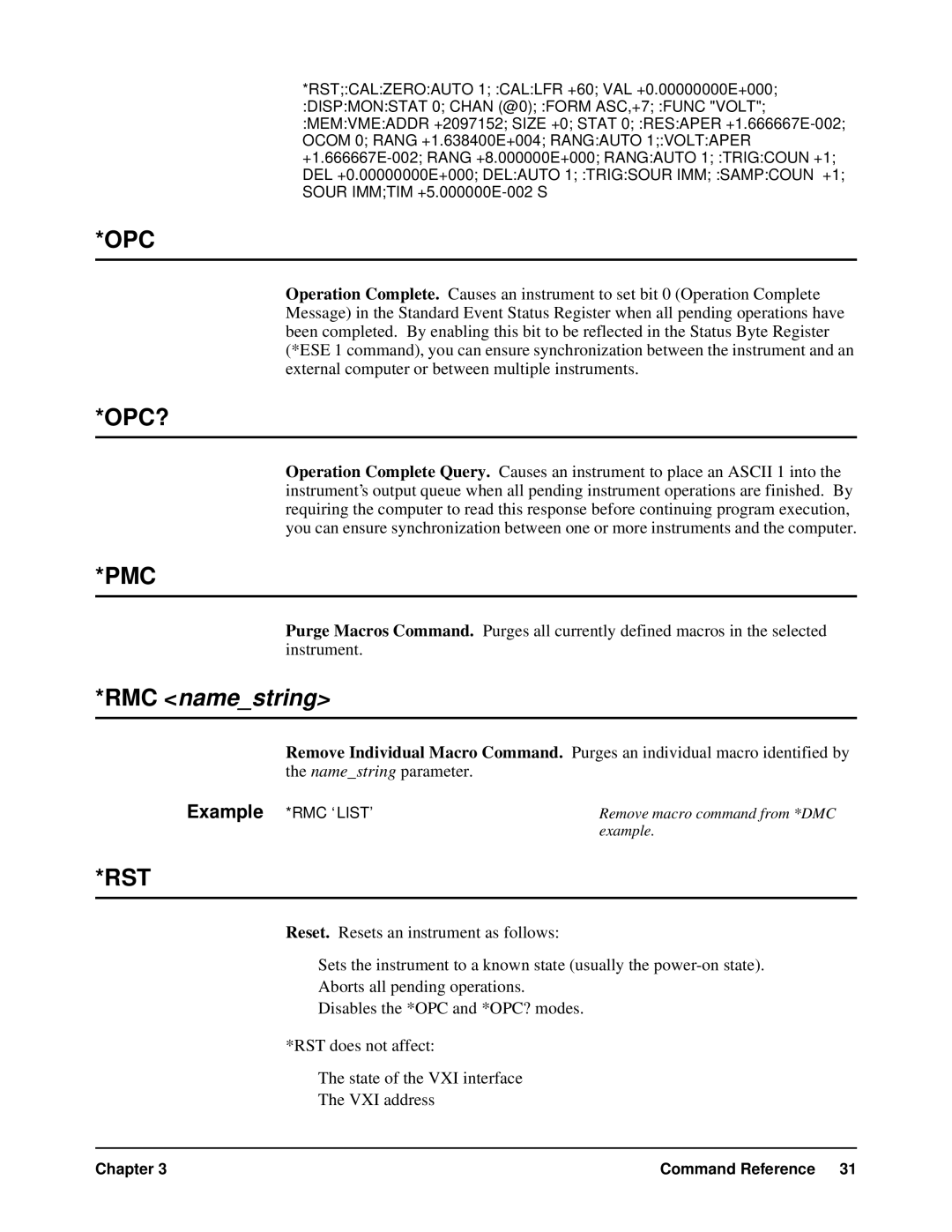
*RST;:CAL:ZERO:AUTO 1; :CAL:LFR +60; VAL +0.00000000E+000; :DISP:MON:STAT 0; CHAN (@0); :FORM ASC,+7; :FUNC "VOLT"; :MEM:VME:ADDR +2097152; SIZE +0; STAT 0; :RES:APER
*OPC
Operation Complete. Causes an instrument to set bit 0 (Operation Complete Message) in the Standard Event Status Register when all pending operations have been completed. By enabling this bit to be reflected in the Status Byte Register (*ESE 1 command), you can ensure synchronization between the instrument and an external computer or between multiple instruments.
*OPC?
Operation Complete Query. Causes an instrument to place an ASCII 1 into the instrument’s output queue when all pending instrument operations are finished. By requiring the computer to read this response before continuing program execution, you can ensure synchronization between one or more instruments and the computer.
*PMC
Purge Macros Command. Purges all currently defined macros in the selected instrument.
*RMC <name_string>
Remove Individual Macro Command. Purges an individual macro identified by the name_string parameter.
Example *RMC ‘LIST’ | Remove macro command from *DMC |
| example. |
*RST
Reset. Resets an instrument as follows:
•Sets the instrument to a known state (usually the
•Aborts all pending operations.
•Disables the *OPC and *OPC? modes.
*RST does not affect:
•The state of the VXI interface
•The VXI address
Chapter 3 | Command Reference 31 |
